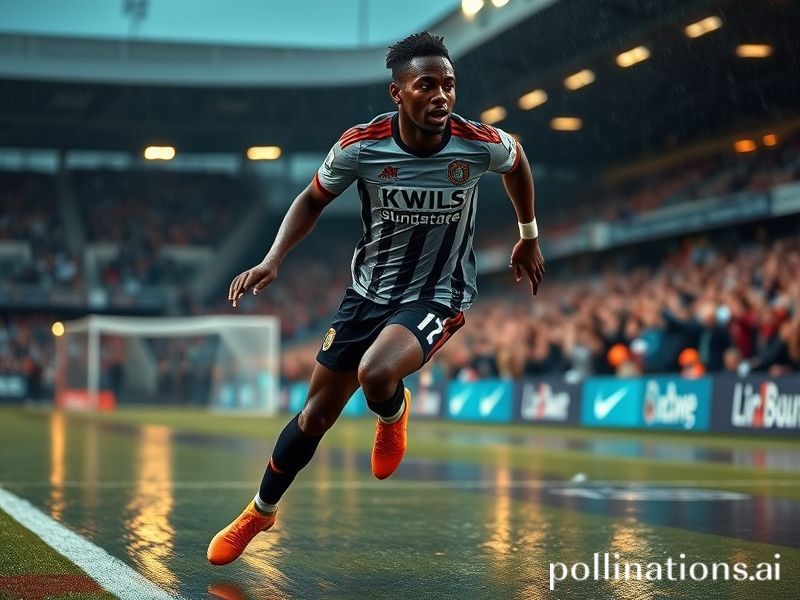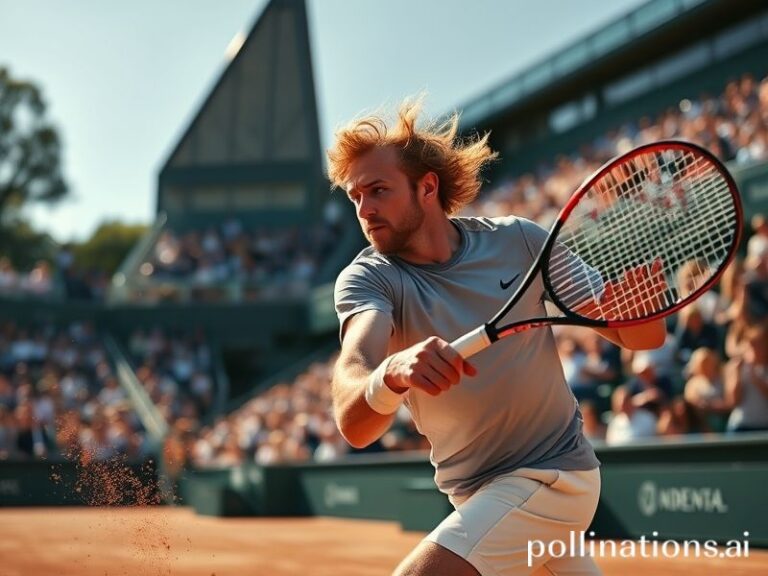Yankuba Minteh: How a Gambian Teenager Became Football’s Hottest Geopolitical Derivative
Yankuba Minteh: A Gambian Speedster Becomes Football’s Newest Geopolitical Football
By Our Correspondent Somewhere Between Banjul and the Boardroom
Banjul—If you blinked last week you probably missed Yankuba Minteh’s transfer history. On Monday the 19-year-old winger was property of Danish side OB; by Wednesday he’d been flipped to Newcastle United for a cool £6-million; on Friday he was immediately loaned to Feyenoord because, well, the English club would rather develop him in Rotterdam than risk him actually playing in England and inflating their wage bill. Somewhere in the middle, a Senegalese middleman reportedly pocketed enough in “intermediary fees” to buy a small island, presumably one without Financial Fair Play inspectors.
Welcome to the global village, where a kid who grew up kicking taped-up plastic bottles on Gambia’s Atlantic coast can be repackaged, rebranded and re-exported faster than a container of Chinese-made EU-flag t-shirts. Minteh’s lightning feet have turned him into a human derivative, a footballing NFT whose value spikes every time a scout refreshes his Gmail. The irony? He has yet to start a senior match in Europe. In any other industry this would be called speculation; in football it’s simply “Tuesday.”
The Gambian angle is delicious. The smallest nation on mainland Africa—population 2.3 million, roughly the same as the Paris metro during a rail strike—has now produced two of Europe’s most hyped teenagers in as many years (see: Musa Barrow, see also: the conveyor belt that begins at the Bakau-based “Real de Banjul” academy and ends somewhere in the Italian third tier). The state’s annual GDP would fit inside Chelsea’s transfer budget with room left over for a Lukaku loan fee, yet its chief export is no longer peanuts but pacey wingers. If that doesn’t make the World Trade Organization blush, nothing will.
Meanwhile, the Dutch are enjoying a free trial of Africa’s newest commodity. Feyenoord fans have already nicknamed Minteh “The Gambian Flash,” which sounds like a discount superhero but beats being labeled “The Schengen Visa.” The Eredivisie, once the world’s most picturesque farmer’s league, has become a halfway house for Premier League assets too raw for England but too valuable to stay home—sort of like a soccer gap year before the real debt begins. Should Minteh light up the Rotterdam skyline, his price tag will balloon faster than Dutch energy bills, and Newcastle can flip him for triple the fee without him ever learning the words to “Blaydon Races.”
Geopolitically, the deal is a masterpiece of post-Brexit arbitrage. English clubs can no longer poach EU teenagers straight from Dakar playgrounds, so they park them in EU airspace first—think of it as a sort of athletic layover, with better waffles. The arrangement keeps everyone happy: Newcastle comply with work-permit points, Feyenoord get a season-long highlight reel, and Minteh receives a crash course in European tax law. The only losers are the fans, who must now memorize squad numbers that change more often than British prime ministers.
Yet lurking beneath the cynicism is a darker truth: every lightning-quick dribble masks a structural failure. Gambia’s youth unemployment hovers around 40 percent; the national stadium still has benches last re-varnished during the Carter administration. When a single 19-year-old becomes a national stock option, hope is rationed like fuel in a war zone. If Minteh’s knee buckles tomorrow, an entire pipeline of investment dries up with it—no insurance policy, no pension, just the echo of a transfer notification disappearing into the Twitter void.
Still, the boy himself remains endearingly oblivious to the spreadsheets. Asked by a Dutch reporter what he knew about Feyenoord, he replied, “They once won the European Cup, right?”—a sentence that simultaneously warmed every Rotterdam heart and confirmed that history really is written by the victors, or at least by whoever controls the Wi-Fi password at the training ground.
So keep an eye on the touchline this autumn. Somewhere between the 73rd minute and the inevitable substitute applause, you’ll glimpse the future: a teenager sprinting past a Belgian full-back while three accounting departments on two continents hold their breath. It’s not just football; it’s globalization in studded boots, running at you with no intention of slowing down. And if the whole thing collapses into a tangle of ligaments and leveraged debt, don’t worry—there’s always another village prodigy waiting to be commodified, another passport to stamp, another dream to monetize before breakfast.
In the beautiful game, as in life, the only certainty is that someone, somewhere, is already drawing up the invoice.







